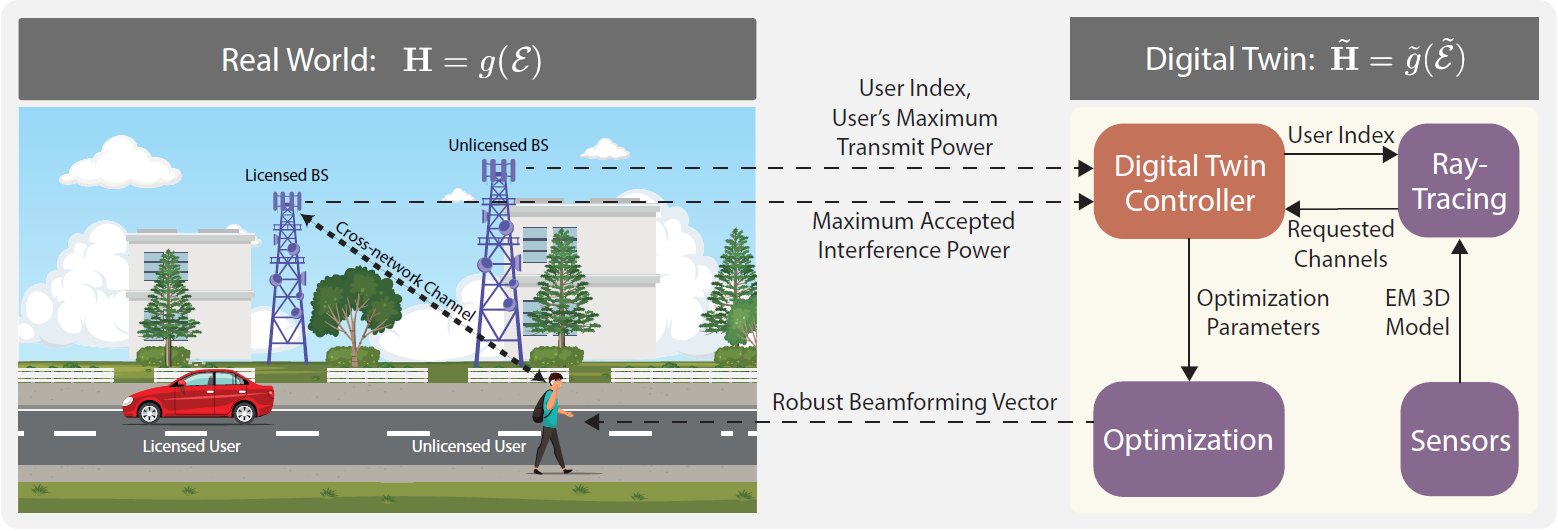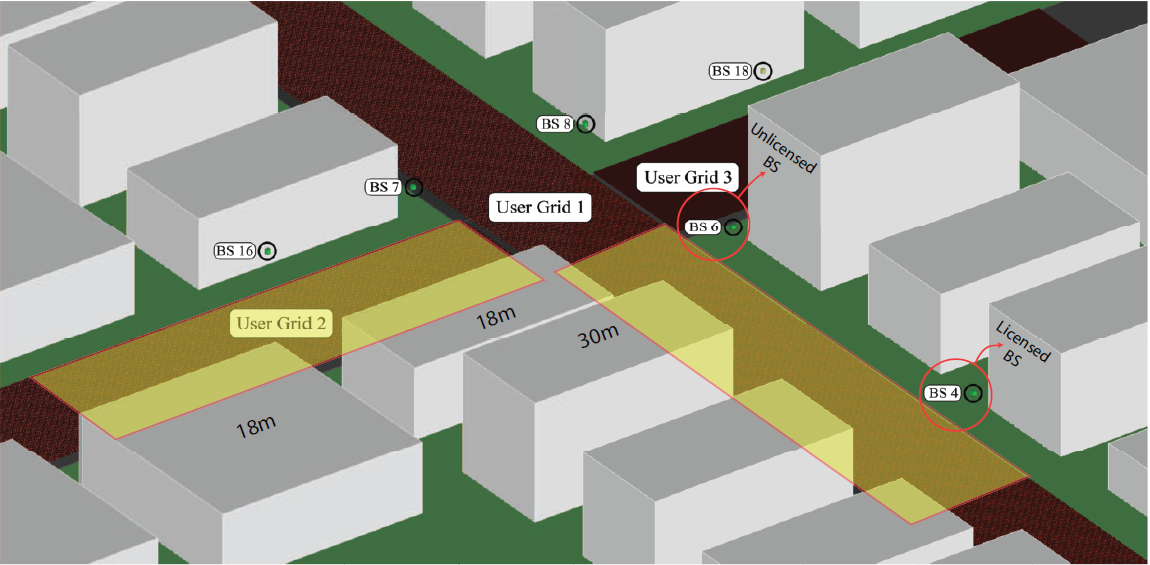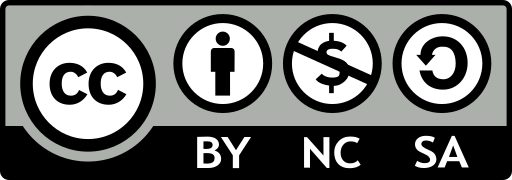Digital Twin for Spectrum Sharing and Coexistence: Coordinating the Uncoordinated
Accepted at the 25th IEEE International Workshop on Signal Processing Advances in Wireless Communications (SPAWC)
Sadjad Alikhani, Ahmed Alkhateeb
Wireless Intelligence Lab, Arizona State University, USA

This figure illustrates how the suggested system functions to establish spectrum coexistence through the utilization of a digital twin. The digital
twin’s approximation of cross-network wireless channels is employed to prevent significant interference powers at licensed base stations.
Abstract
Spectrum sharing offers a solution to the limited availability of spectrum in highly demanding wireless networks. However, sharing spectrum among multiple wireless nodes must not violate interference regulations in licensed networks, which is particularly difficult for uncoordinated networks. In this paper, we propose a novel approach that utilizes digital twins (DTs) of the physical environments to coordinate networks and approximate wireless channels, essential for maximizing transmission opportunities in an unlicensed network. To address the possible digital twin channel approximation errors, which may lead to more interference than planned on the licensed networks, we propose two robust beamforming designs for unlicensed users. Our results demonstrate that our conservative and probabilistic robust beamforming designs successfully meet interference constraints over 97.5% of the time across different levels of channel errors. Additionally, the conservative design can handle user localization errors at least 95% of the time. All that renders digital twins as a promising approach for spectrum sharing and coexistence.
Simulation Setup

This figure depicts the geometric arrangement of the simulation scenario, based on the O1 scenario from the DeepMIMO dataset. In this setup, ”BS 6” functions as the unlicensed BS, while ”BS 4” serves as the licensed BS. The highlighted yellow regions represent the service area.
Reproduce the Results

Citation
S. Alikhani and A. Alkhateeb, ‘Digital Twin Aided RIS Communication: Robust Beamforming and Interference Management’, arXiv [eess.SP]. 2024.
@misc{alikhani2024digitaltwinaidedris,
title={Digital Twin Aided RIS Communication: Robust Beamforming and Interference Management},
author={Sadjad Alikhani and Ahmed Alkhateeb},
year={2024},
eprint={2406.04188},
archivePrefix={arXiv},
primaryClass={eess.SP},
url={https://arxiv.org/abs/2406.04188},
}

